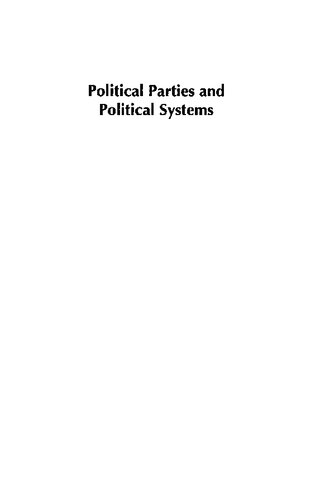

Most ebook files are in PDF format, so you can easily read them using various software such as Foxit Reader or directly on the Google Chrome browser.
Some ebook files are released by publishers in other formats such as .awz, .mobi, .epub, .fb2, etc. You may need to install specific software to read these formats on mobile/PC, such as Calibre.
Please read the tutorial at this link: https://ebookbell.com/faq
We offer FREE conversion to the popular formats you request; however, this may take some time. Therefore, right after payment, please email us, and we will try to provide the service as quickly as possible.
For some exceptional file formats or broken links (if any), please refrain from opening any disputes. Instead, email us first, and we will try to assist within a maximum of 6 hours.
EbookBell Team

0.0
0 reviewsSince its release in 1980, Kay Lawson's Political Parties and Linkage: A Comparative Perspective has become a classic text in the field of political science. In her groundbreaking work Lawson approaches linkage from an angle left unexplored by her predecessors. Her thinking filled in the systematic and theoretical void by envisioning political parties as the link between citizens and policy makers. This collection of essays by leading political scientists reflects on Lawson's concept of linkage, its theory, and its application over the last quarter century. The work is divided into two sections, the first covers linkage's impact on party research and the second focuses on its application in general political science. The first looks at such topics as the evolution and intellectual development of Lawson's concept through social actors, policy responsiveness, and multi-layer politics. The second handles issues like globalization, the relation of state and society, the European Union and it's proposed constitutional reform, and the cross-cultural significance of linkage in such countries as India. The book concludes with an illuminating chapter by Lawson that responds to the featured themes and explains her current views on linkage and democracy.